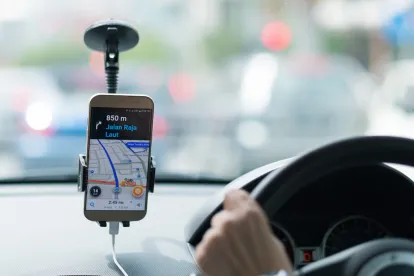The National Labor Relations Board (NLRB) has once again weighed in on the proverbial employee-independent contractor issue, this time by way of its General Counsel. On April 16, 2019, the General Counsel’s office issued an Advice Memorandum (Advice Memo) mirroring the NLRB’s January 25, 2019, decision in SuperShuttle DFW, Inc. and ultimately concluding that Uber’s drivers are independent contractors and therefore not covered by the National Labor Relations Act (the “Act”). This “win” for the ride-sharing service has the potential to impact similarly structured companies in the gig economy, specifically with regard to issues that fall under the Act’s control.
In SuperShuttle, the NLRB applied the traditional multi-factor common law agency test and concluded that the airport shuttle driver franchisees at issue were independent contractors, and thus excluded from the Act’s coverage. The Board was particularly persuaded by facts showing that the franchisees were exposed to entrepreneurial opportunity for economic gain and risk of substantial loss. The Board observed that “employer control and entrepreneurial opportunity are opposite sides of the same coin: in general, the more control, the less scope for entrepreneurial initiative, and vice versa.” Importantly, the NLRB’s decision overruled its 2014 Obama-era decision, which dramatically limited the importance of entrepreneurial opportunity in the independent contractor analysis.
In the recent Advice Memo, Associate General Counsel Jayme L. Sophir latched onto the same legal principle expressed in SuperShuttle, which called for the examination of each of the common law factors through the lens of entrepreneurial opportunity and exposure to risk. In doing so, Sophir identified the following facts which, when viewed “through the prism of entrepreneurial opportunity,” support a conclusion that Uber drivers are independent contractors:
-
Drivers were free to set their own schedules;
-
Drivers were free to choose where they worked;
-
Drivers could, and often did, freely work for competitors;
-
Drivers provided the principal instrumentality—the cars they used to complete trips;
-
Drivers were responsible for chief operating costs such as gas, cleaning, and maintenance of their cars;
-
Drivers were not required to take trips at the direction of Uber and could reject proposed trips at their discretion; and
-
Drivers signed contracts which expressly characterized their relationship to Uber as independent contractors – and Uber provided no benefits, paid leave, or holiday pay.
The Advice Memo is the latest example of the Trump administration’s efforts to overturn employee-friendly policies strengthened during the Obama administration. Another example is the Opinion Letter issued by the Department of Labor (DOL) on April 29, 2019. As we previously explained, in that Opinion Letter the DOL similarly concluded that a company’s gig economy workers are properly classified as independent contractors and therefore not entitled to minimum wages and overtime under the Fair Labor Standards Act.
Employers should not celebrate just yet, however. Many states are responding to this shifting tide in federal law by enacting state law tests for independent contractor status that are decidedly even more employee-friendly than before. California and Massachusetts are prime examples of this, with each state promulgating the infamous “ABC” test by way of case law and statute, respectively. Thus, it is important to understand that while SuperShuttle represents a return to normal in some respects, its reach is presently only limited to union activity, and many state and local governments are actively working against such efforts.




 />i
/>i

